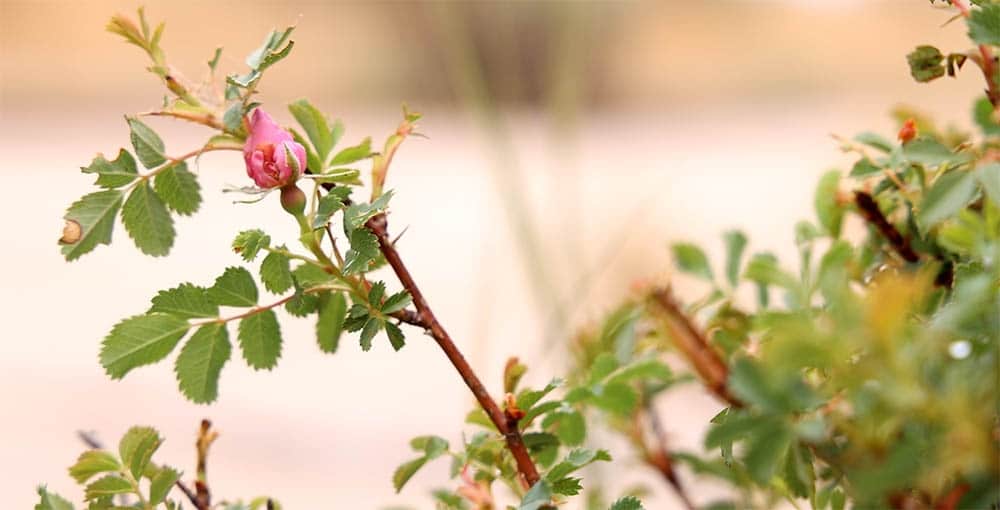DCPA NEWS CENTER
Enjoy the best stories and perspectives from the theatre world today.
Enjoy the best stories and perspectives from the theatre world today.

There are hundreds of rosebushes blooming in the Denver Botanic Gardens, but rarely has one bloomed in a more timely manner. On Friday, May 17, a ceremony was held to designate the Amache National Historic Site in southeastern Colorado as part of the National Park System. Over the following weekend, a pink rose bloomed for the first time in the gardens. That rose is a bright spot from one of the darkest chapters in American history.
Eighty years ago, a Japanese American prisoner detained at the Granada Relocation Center, or Camp Amache, planted a cutting in the harsh arid desert of Prower County. A prison camp that operated in southeastern Colorado from 1942-1945, Camp Amache was one of 10 forced internment sites established during World War II to detain Japanese Americans. More than 100,000 people were rounded up and removed from the West Coast, forced to leave their homes, businesses, and belongings behind. Among them was five-year-old George Takei, who would go on to act in the science fiction series Star Trek.
At least one of the 7,300 prisoners held there brought a rose to Amache. Growing in near desert conditions, it bloomed under the care of those who were imprisoned there then went dormant for nearly 80 years. Horticulturists at the Denver Botanic Gardens collected cuttings at the site, and shared propagated cuttings last year with families of the Camp Amache prisoners.
Now, the first blooms of these valiant survivors can be appreciated at the York Street location in the northeast side of the Steppe Garden to the east of a wooden bench. A small black plant label identifies the Amache rose.
Hearty, resilient and beautiful — just like the people who endured.
“It’s a testament and metaphor for the resilience of nature and it is a sad reminder of this really dark part of Colorado history,” said Erin Bird, Associate Director of Communications for the Denver Botanic Gardens.
The short film Amache Rose, the first produced by Denver Botanic Films, tells the story of the flower. It has been screened at the garden’s Sturm Family Auditorium and is available on Rocky Mountain PBS.
